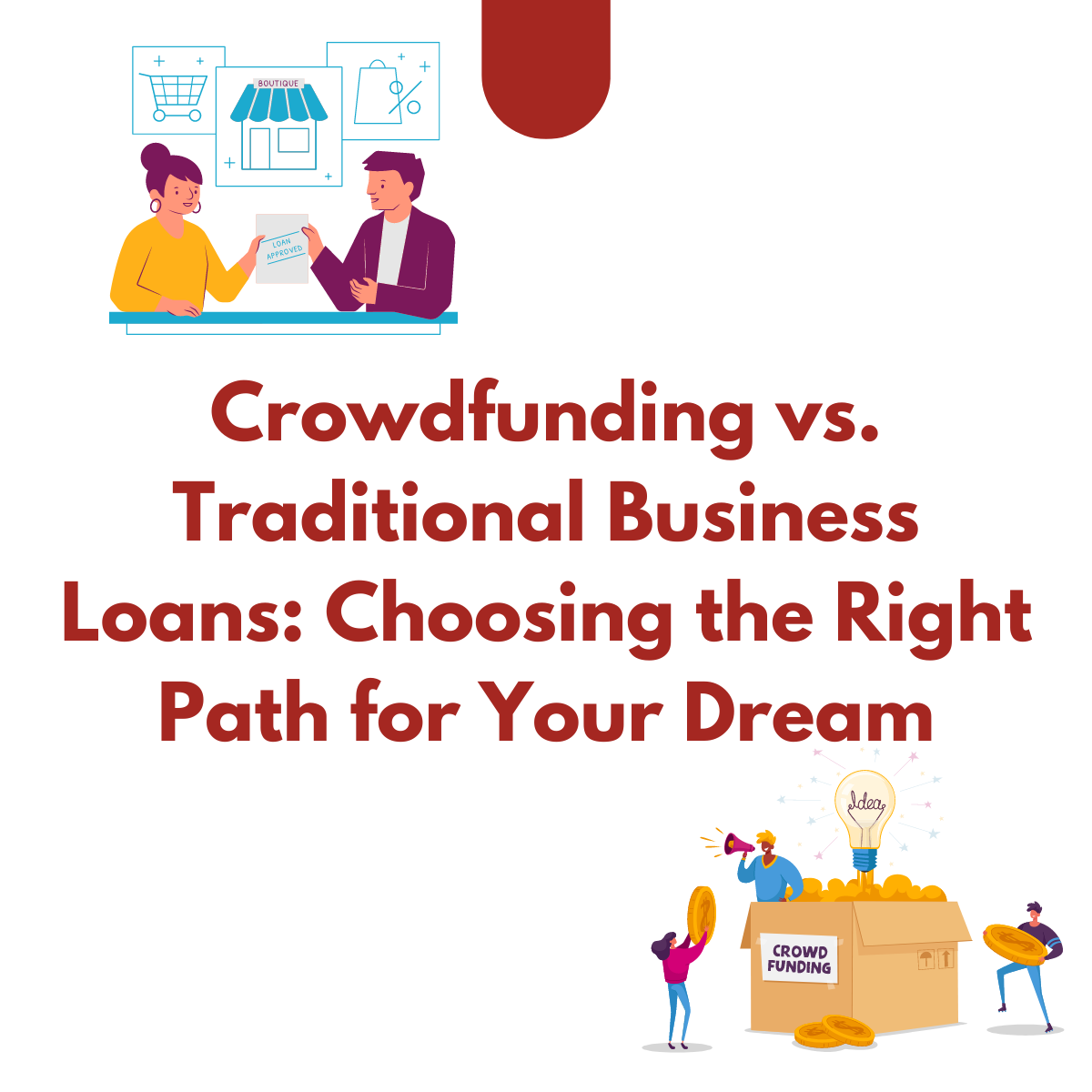Crowdfunding vs. Traditional Business Loans: Choosing the Right Path for Your Dream

Whether you’re launching a groundbreaking tech product, opening a charming local bakery, or pursuing any other entrepreneurial dream, securing funding is often the first major hurdle. Two popular options emerge: crowdfunding and traditional business loans. Each holds distinct advantages and drawbacks, and the right choice depends on your unique circumstances and goals.
Crowdfunding:
Pros:
Accessibility: Many platforms have minimal barriers to entry, making them open to startups and individuals with limited credit history.
Community building: Can generate excitement and early adopters for your product or service.
Flexible funding goals: You can choose your target amount and only receive what you raise.
Variety of platforms: Platforms cater to different industries and business types, allowing you to reach a targeted audience.
Cons:
Success is not guaranteed: You need to effectively market your campaign and reach your funding goal within a set timeframe.
Repayment: Depending on the platform, you may offer rewards or equity to backers, meaning you give up a piece of your business or owe something in return.
Platform fees: Many platforms charge fees for successful campaigns, impacting your overall profit.
Regulatory requirements: Depending on the amount you raise and platform used, you may need to comply with specific regulations.
Traditional Business Loans:
Pros:
Larger funding amounts: Can secure significantly more capital compared to most crowdfunding campaigns.
Established structure: Clear terms and repayment schedules provide predictable financial planning.
Potential tax benefits: Interest payments on business loans may be tax-deductible.
Professional guidance: Lenders often offer support and mentorship throughout the loan process.
Cons:
Stricter requirements: Good credit history, detailed business plans, and collateral may be required.
Repayment pressure: Fixed monthly payments can strain your cash flow, especially in the early stages.
Limited access: Startups and individuals with limited credit history may face difficulty securing loans.
Interest rates: Can vary depending on your creditworthiness and loan terms, adding to your financial burden.
So, how to choose?
Funding needs: Consider the amount of capital you require. Crowdfunding may suffice for smaller ventures, while loans are better suited for larger needs.
Business stage: Early startups may find crowdfunding easier to access, while established businesses with good credit can benefit from loans.
Comfort with sharing equity or offering rewards: If you’re hesitant to give up ownership or offer rewards, a loan might be preferable.
Ability to meet repayment obligations: Ensure you can comfortably meet loan payments without jeopardizing your business.
Remember: Seek professional advice from financial experts or business advisors to weigh your options and make an informed decision based on your specific circumstances.
Ultimately, the right funding path depends on your unique venture and risk tolerance. Evaluate both options carefully and find the one that propels your dream towards success!
